“A messy rollercoaster that you won’t soon forget”: Actor and co-director Greg Esplin on Trainspotting Live
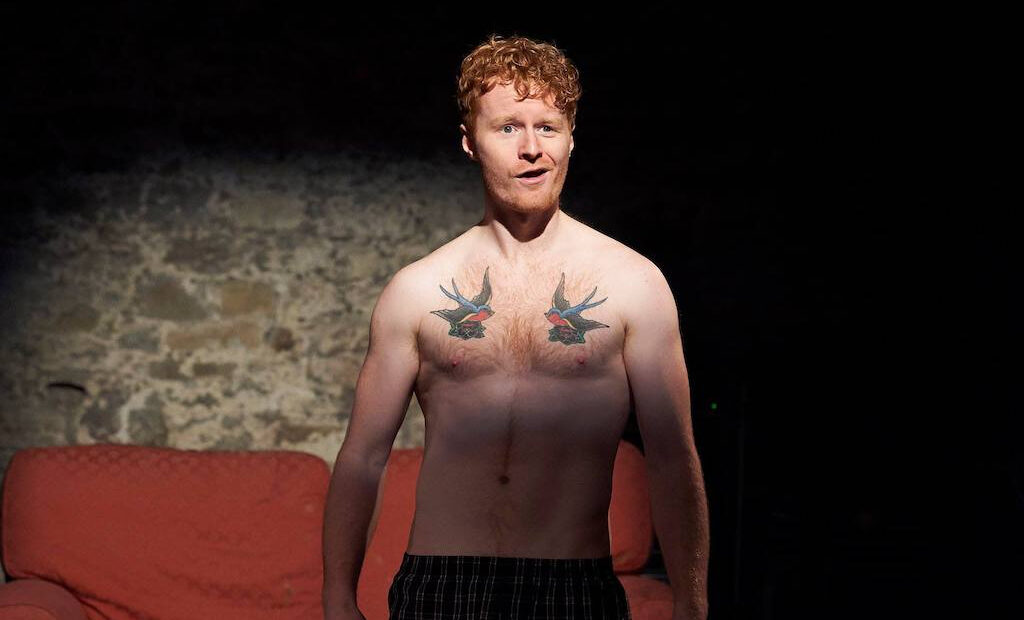
Greg Esplin is a Scottish actor and co-director of Trainspotting Live, the immersive stage adaptation of Irvine Welsh’s novel and Danny Boyle’s iconic film. He plays tragic tritagonist Tommy in the show.
The Upcoming had a chance to meet Greg in the midst of the tour, chatting with him about the iconic status of Trainspotting in Scottish pop culture, the merits of theatre as an art form, and his favourite ways to prepare for performance.
You’re one of the originators of the show Trainspotting Live – what drew you to adapting Trainspotting?
Growing up in Scotland, Trainspotting is almost a rite of passage, I suppose – at least it felt that way for my generation. I remember seeing the movie when I must have been about 14, and it just being stuck in my head. I wrote my first high-school English essay on the book. So, after putting on a couple of previous shows, when choosing the next, Trainspotting just felt like the right play to have a go at.
Trainspotting has had such huge success, as both a novel and as a film, to the point where both versions are considered to be “cult classics”. Did you have any reservations about changing its form when adapting it for the theatre?
Well, Trainspotting was a play before it was a film, I believe Euan Bremner (Spud in the film) played Renton in the play. Admittedly, though, I still had my reservations about doing it, of course. That’s because I was just a 21-year-old student, who was so fresh to the industry, so I had a bit of imposter syndrome about putting on one of Scotland’s most treasured texts. I think if I thought about it now – as a 30-year-old – I’d probably tell you it’s a terrible idea. I’m grateful to 21-year-old me for just going for it.
Do you think there’s something unique about theatre as an art form, compared to others such as literature or film, that makes it well-suited to the story of Trainspotting?
Absolutely. Theatre is live, it’s happening right in front of you, whether you like it or not. I think Trainspotting deals with a lot of sensitive themes and issues, and sometimes people want to look away from that. With theatre, you can’t just pause it or fold a page and put it down for another day; you must watch it until the bitter end. You can look the characters in the eyes and feel more of what we want you to. Don’t get me wrong, I adore film and literature, but I just think theatre has the advantage of being live.
As both co-director and one of the actors in the show, is there a role you prefer?
I love acting – it really is my favourite role. I’ve grown to love directing and, with the more experience I have as an actor, I think I also gain more as a director. I think I ended up a director through necessity, as I wanted to put my own work on. If I had to choose one it would be acting.
You opened the 2022 UK tour of Trainspotting Live at the Edinburgh Fringe Festival. Was that an intentional decision, given that it’s set in Edinburgh?
We always planned on doing the fringe with the tour. It didn’t matter so much if it started there or finished there, to be honest. It certainly does help having it at the beginning, if you have a successful fringe, as it created a buzz for us heading into the rest of the tour.
Do you find that the experience of performing Trainspotting Live or the response of the audience changes depending on the venue? For example, is there a difference between performing in Scotland and performing in England?
It does feel different in different cities: when we do it in Scotland, there’s a sense of ownership from the audience and perhaps more of a pressure to impress; when we take it around England and other countries, we must consider how much of the text the audience are understanding. There’s so much east coast slang in the text that we are aware a lot of that is lost on some audiences. We tread a fine line, though, because I don’t want to sanitise the text just for it to be understood. Not every word needs to be understood as it’s quite clear the emotions being felt on stage. We had a Swiss woman come see the show who didn’t speak a word of English but absolutely loved the show because it’s so visceral.
Trainspotting Live is incredibly funny, but it comes as no surprise that it’s also very dark at times, given its subject matter. Do you ever find it emotionally difficult to perform a play about heroin addiction?
At first, it was difficult and quite draining, but now I just feel more of a sense of responsibility to do these stories justice – because they are real issues, and we need to make sure its humanised and not glorified. We owe it the people who have lived the experience – directly or indirectly – that we take it seriously and do it justice.
The show is very immersive, with audience members essentially becoming part of the play. Can you explain the rationale behind this decision?
Yes, it is fairly immersive. However, it’s not immersive just for the sake of it or just to shock – It’s immersive because I genuinely believe it helps better drive the story along. It also stops audience members from feeling like they can simply relax and look away, therefore I believe it helps the themes of the play be better understood and felt by the audience.
Do you have a specific method or technique for getting into character when you perform?
I really enjoy being physical, so I do an intense stretch and warm-up, so my body is ready for any performance. When it comes to physicality, I enjoy the work of Uta Hagen; I spent a lot of time studying her work and feel like I implement that in most of my research into finding a character. I also use a bit of Chekhov when it comes to the emotional side – I like his work into psycho-physical work and using my imagination to create feelings. It can be useful to do some of Stanislavski’s work to draw on past experiences if that works for you.
Do you think people need to have read the book or watched Trainspotting before they see your show?
No. We seem to be the first introduction into the world of Trainspotting for a lot of our audiences, and I love that. I envy some people getting to experience these characters for the first time! But, also, if you have seen the film or read the book, you will have the advantage of knowing what to expect. The play sits somewhere between the two forms as its own thing, now, I believe.
And finally, if you had to give a one-sentence headline for Trainspotting Live, what would it be?
A messy rollercoaster that you won’t soon forget for good or bad reasons!
Madison Sotos
Trainspotting Live is touring the UK until 12th November 2022. For further information or to book tickets visit here.
Read our review of Trainspotting Live at Edinburgh Fringe here.
Watch the trailer for Trainspotting Live here:

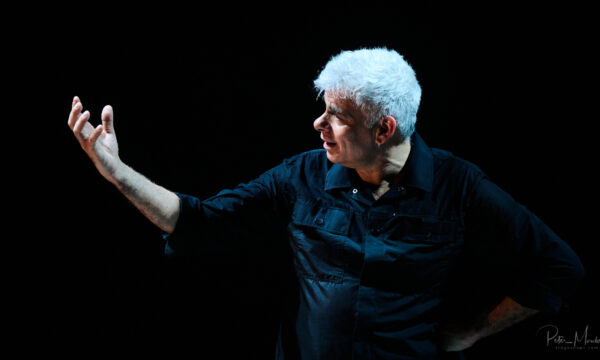
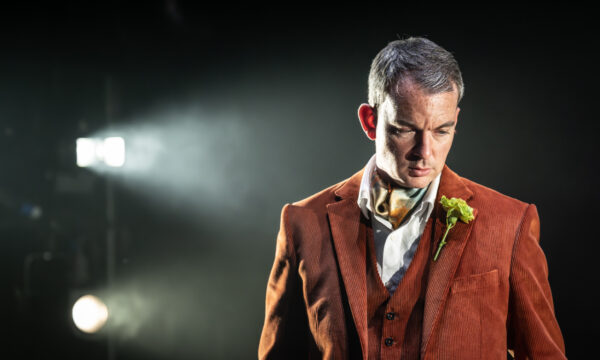
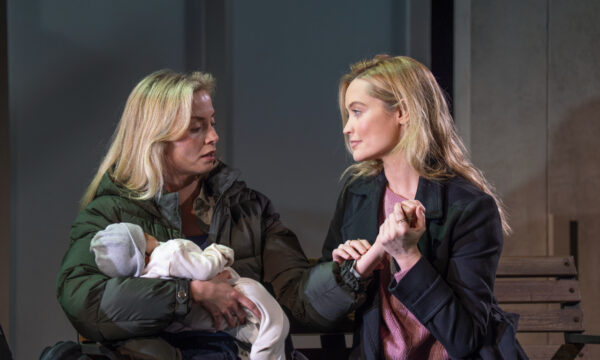
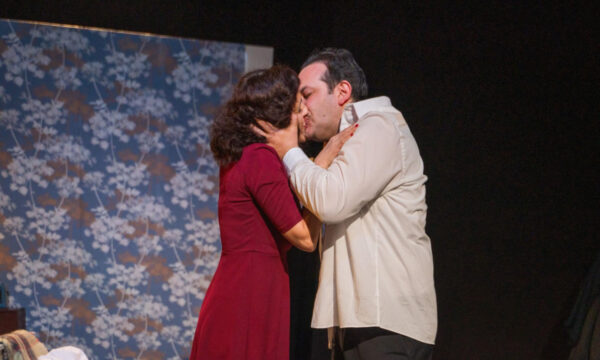
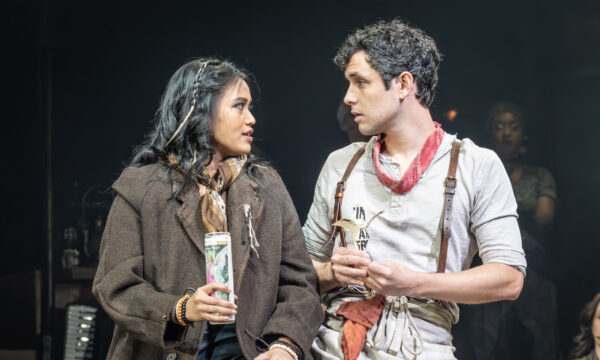
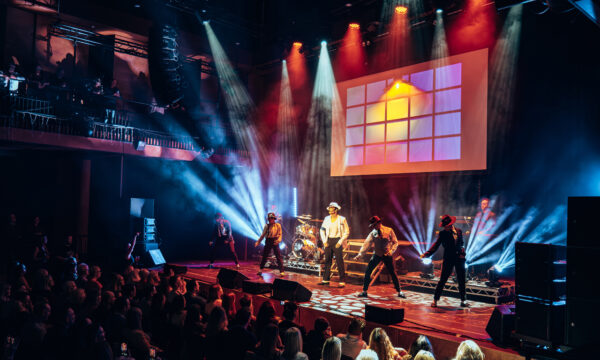
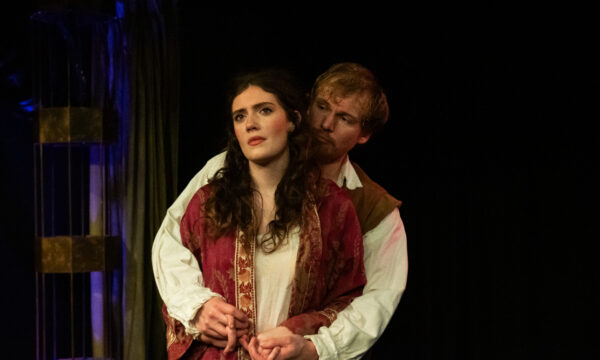
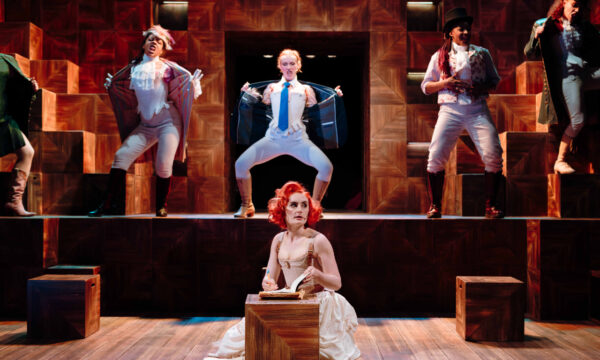
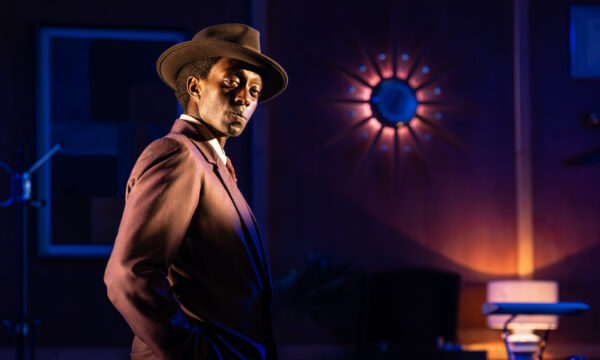










Facebook
Twitter
Instagram
YouTube
RSS